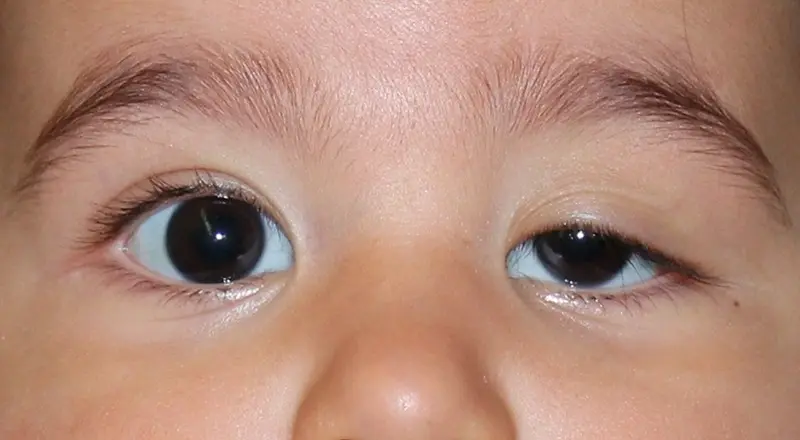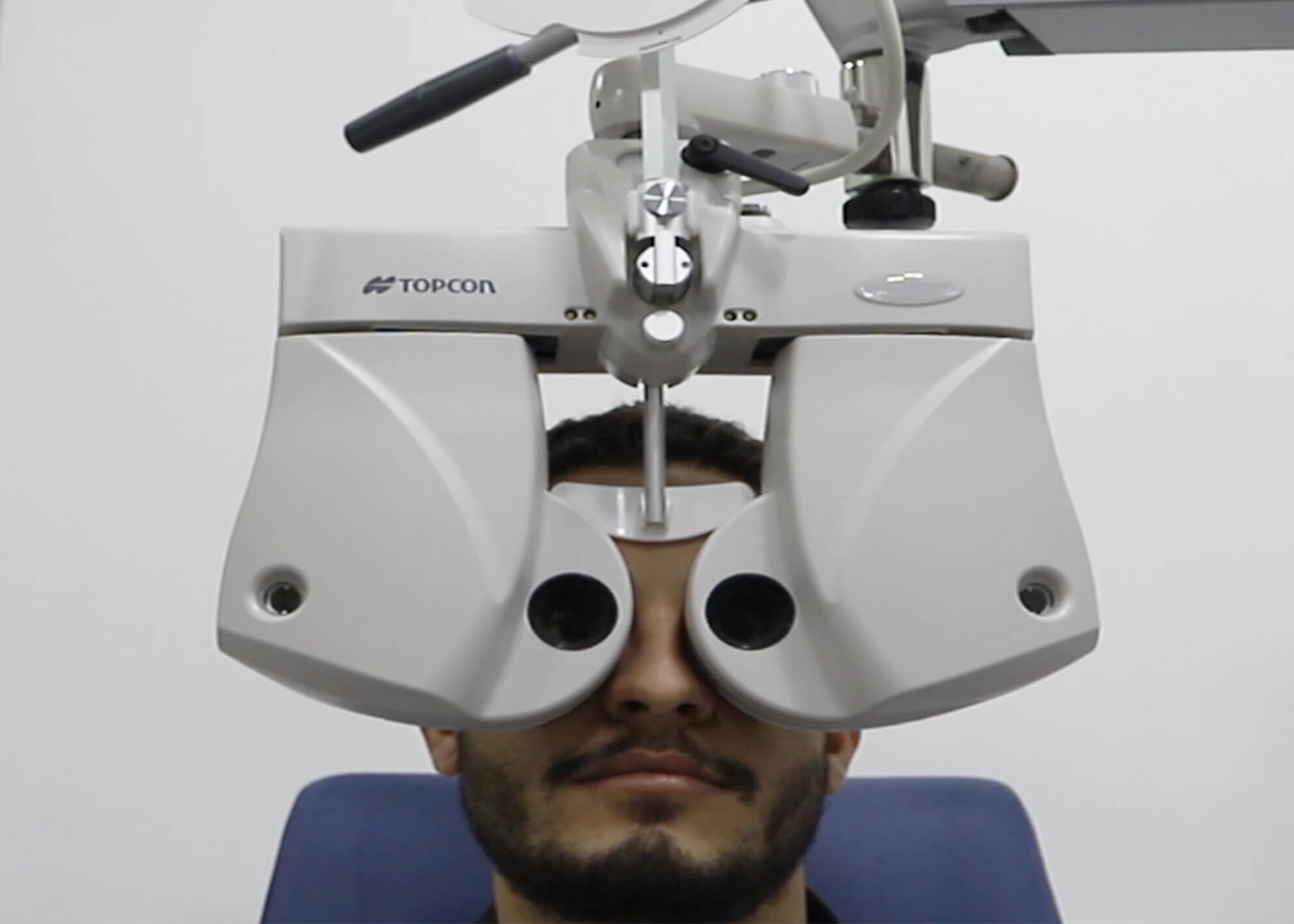Congenital Eye Disorders at Eye Clinic DRHC Dubai
Congenital eye disorders are vision problems or abnormalities present at birth that can affect one or both eyes. These disorders can range from mild to severe and may impact the development of the eye's structure or function. Early diagnosis and intervention are essential to prevent long-term vision impairment and ensure proper visual development.
At DRHC Dubai, our team of pediatric ophthalmologists specializes in diagnosing and treating congenital eye disorders, offering advanced medical and surgical care to improve visual outcomes for children.
Common Type of Congenital Eye Disorders
Congenital eye disorders can affect different parts of the eye and vary in severity. Some of the most common types include:
- Congenital Cataracts: A clouding of the lens present at birth, which can block light from reaching the retina and lead to vision problems or blindness if untreated.
- Congenital Glaucoma: A rare condition in which increased pressure inside the eye (intraocular pressure) damages the optic nerve, leading to vision loss. Symptoms may include enlarged or cloudy eyes, excessive tearing, and light sensitivity.
- Strabismus (Crossed Eyes): A condition where the eyes are misaligned and do not look in the same direction. Strabismus can affect vision development and depth perception.
- Amblyopia (Lazy Eye): A disorder in which one eye is weaker than the other, causing the brain to favor the stronger eye. If not treated early, amblyopia can result in permanent vision loss in the affected eye.
- Coloboma: A gap or defect in the structure of the eye, often affecting the iris, retina, or optic nerve, leading to vision difficulties.
- Retinopathy of Prematurity (ROP): A condition seen in premature infants where abnormal blood vessels grow in the retina, potentially leading to retinal detachment and blindness.
- Congenital Ptosis: A drooping of the upper eyelid that can interfere with normal vision and, in severe cases, lead to amblyopia.
Causes of Congenital Eye Disorder
Congenital eye disorders may arise from various factors, including:
- Genetic Factors: Many congenital eye conditions are inherited and may run in families.
- Infection During Pregnancy: Maternal infections such as rubella, toxoplasmosis, or cytomegalovirus can interfere with normal eye development in the fetus.
- Premature Birth: Babies born prematurely are at a higher risk of developing conditions like retinopathy of prematurity (ROP).
- Developmental Abnormalities: Some congenital disorders result from improper development of the eye during pregnancy.
Symptom of Congenital Eye Disorders
The symptoms of congenital eye disorders can vary depending on the specific condition. Some general signs to watch for in infants and young children include:
- Abnormal Eye Appearance: Unusual eye shape, size, or color.
- Misaligned Eyes: One or both eyes may appear crossed or misaligned.
- Poor Visual Response: Lack of eye contact or difficulty tracking objects.
- Eye Movements: Uncontrolled or abnormal eye movements (nystagmus).
- Light Sensitivity: Excessive squinting or sensitivity to bright lights.
- Cloudy Eyes: Cloudiness in the pupil or iris, often indicating cataracts or glaucoma.
Diagnosing Congenital Eye Disorders
Early diagnosis of congenital eye disorders is crucial for effective treatment. At DRHC Dubai, we use advanced diagnostic tools to accurately assess and diagnose eye conditions in newborns and children. Our diagnostic process includes:
- Comprehensive Eye Examination: A thorough evaluation of the eye’s structure and function to identify any abnormalities.
- Ocular Ultrasound: Imaging of the eye’s internal structures to detect issues such as cataracts, retinal detachment, or optic nerve abnormalities.
- Genetic Testing: For conditions with a genetic component, genetic testing may be used to confirm the diagnosis and guide treatment decisions.
- Visual Acuity Testing: Age-appropriate tests to assess the child’s vision and identify any refractive errors or vision problems.
Treatment Options for Congenital Eye Disorders at DRHC Dubai
The treatment of congenital eye disorders varies based on the specific condition and its severity. At DRHC Dubai, we offer a range of advanced treatment options to address these conditions, including:
- Surgical Intervention: Many congenital eye disorders, such as congenital cataracts and glaucoma, require surgery to correct structural abnormalities and preserve vision. Our pediatric eye surgeons are skilled in performing delicate procedures to improve eye function.
- Corrective Lenses: Glasses or contact lenses may be prescribed to correct refractive errors and improve vision in cases such as amblyopia or coloboma.
- Vision Therapy: For conditions like amblyopia, vision therapy can help strengthen the weaker eye and improve coordination between the eyes.
- Medication: For congenital glaucoma, medications such as eye drops may be used to control intraocular pressure and protect the optic nerve from damage.
- Monitoring and Follow-Up: Many congenital eye disorders require ongoing monitoring to ensure proper eye development and to prevent complications. Regular follow-up appointments are essential for long-term care.
Early Intervention and Pediatric Eye Care
Early intervention is critical for congenital eye disorders, as the first few years of life are crucial for visual development. At DRHC Dubai, we offer specialized pediatric eye care to ensure that children with congenital eye disorders receive the best possible treatment and support for optimal visual outcomes.
Why Choose DRHC Dubai for Congenital Eye Disorder Treatments
- Expert Pediatric Ophthalmologists: Our team has extensive experience in diagnosing and treating congenital eye conditions in children, using the latest medical and surgical techniques.
- State-of-the-Art Technology: DRHC Dubai is equipped with advanced diagnostic and treatment tools to provide accurate assessments and effective care.
- Comprehensive Pediatric Care: We collaborate with other pediatric specialists to provide holistic care for children with complex medical needs.
- Personalized Treatment Plans: Every child is unique, and we develop customized treatment plans to address each patient’s specific condition and needs.
.png?width=281&height=59&name=bookanappointment%20(1).png)
At Dr. Rami Hamed Center, our Ophthalmology department is dedicated to safeguarding your vision health through expert eye care Professionals, Renowned as one of the best eye care clinics in Dubai our Ophthalmology Specialists provide services for Cataract and Retina treatment with Laser and Refractive surgeries.




.png?width=281&height=59&name=bookanappointment%20(1).png)






